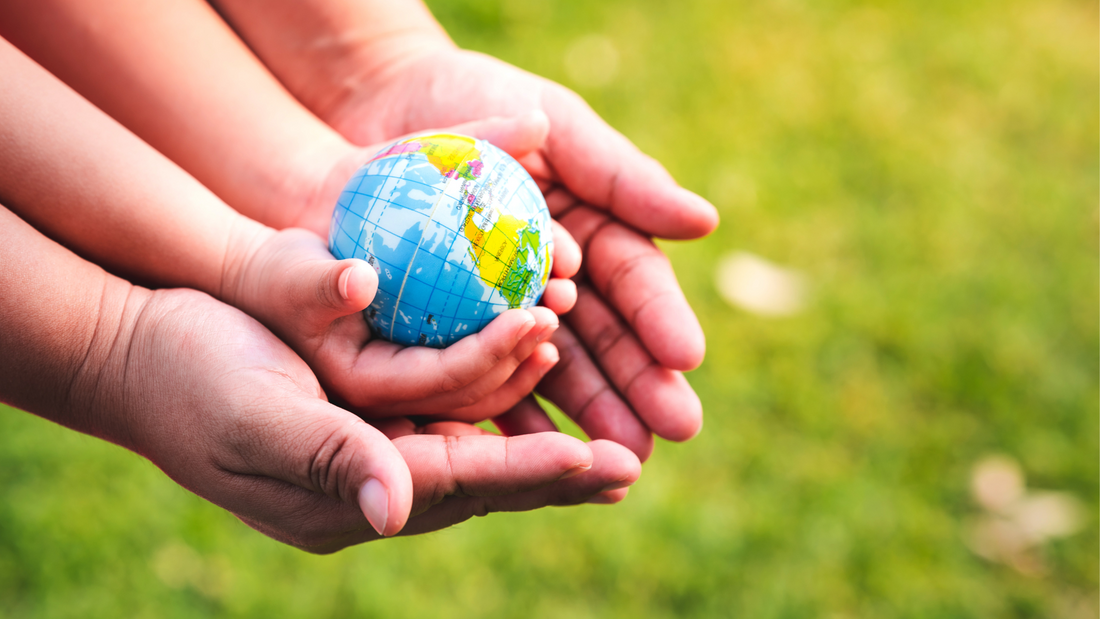
Exploring Sustainable Living: 10 Examples of Everyday Sustainable Products
Share
In today's world, sustainability is more than just a buzzword—it's a way of life. As people become increasingly aware of the environmental impact of their actions, the demand for sustainable products has surged. But what exactly are sustainable products, and how do they contribute to a greener future? In this blog, we'll explore 10 examples of everyday sustainable products that you can incorporate into your life.
1. Reusable Water Bottles:
Single-use plastic water bottles are a major contributor to environmental pollution. Switching to a reusable water bottle made from materials like stainless steel or glass helps reduce plastic waste and conserves resources.
2. Organic Cotton Clothing:
Conventional cotton production often involves the use of harmful pesticides and excessive water consumption. Opting for clothing made from organic cotton eliminates exposure to harmful chemicals and supports more environmentally friendly farming practices.
3. LED Light Bulbs:
Traditional incandescent light bulbs are energy-intensive and have a short lifespan. LED light bulbs, on the other hand, consume less energy, last longer, and produce significantly less heat, making them a more sustainable lighting option.
4. Bamboo Toothbrushes:
Plastic toothbrushes contribute to the growing problem of plastic pollution in oceans and landfills. Bamboo toothbrushes are a biodegradable alternative that reduces plastic waste and can be composted at the end of their lifespan.
5. Eco-Friendly Cleaning Products:
Many conventional cleaning products contain harsh chemicals that can be harmful to both the environment and human health. Choosing eco-friendly cleaning products made from natural ingredients helps minimize exposure to toxins and reduces water pollution.
6. Solar Chargers:
Harnessing the power of the sun with solar chargers for electronic devices reduces reliance on fossil fuels and decreases carbon emissions. Solar chargers are a convenient and sustainable way to keep your gadgets powered up while on the go.
7. Beeswax Wraps:
Single-use plastic cling film is a common kitchen staple that contributes to plastic pollution. Beeswax wraps, made from cotton fabric coated in beeswax, are a reusable and biodegradable alternative for food storage.
8. Sustainable Personal Care Products:
From shampoo bars to menstrual cups, there are numerous sustainable alternatives to conventional personal care products. Choosing items with minimal packaging and natural ingredients helps reduce waste and environmental impact.
9. Stainless Steel Straws:
Plastic straws are a notorious environmental hazard, often ending up in oceans and harming marine life. Switching to stainless steel straws or other reusable alternatives helps combat plastic pollution and promotes sustainable living.
10. Compost Bins:
Food waste accounts for a significant portion of household garbage that ends up in landfills. Composting organic waste at home reduces methane emissions and produces nutrient-rich soil for gardening, closing the loop on the food cycle.
Incorporating sustainable products into your daily routine is a simple yet impactful way to reduce your environmental footprint and contribute to a healthier planet. By making conscious choices about the products we use, we can all play a part in building a more sustainable future for generations to come.
1. Reusable Water Bottles:
Single-use plastic water bottles are a major contributor to environmental pollution. Switching to a reusable water bottle made from materials like stainless steel or glass helps reduce plastic waste and conserves resources.
2. Organic Cotton Clothing:
Conventional cotton production often involves the use of harmful pesticides and excessive water consumption. Opting for clothing made from organic cotton eliminates exposure to harmful chemicals and supports more environmentally friendly farming practices.
3. LED Light Bulbs:
Traditional incandescent light bulbs are energy-intensive and have a short lifespan. LED light bulbs, on the other hand, consume less energy, last longer, and produce significantly less heat, making them a more sustainable lighting option.
4. Bamboo Toothbrushes:
Plastic toothbrushes contribute to the growing problem of plastic pollution in oceans and landfills. Bamboo toothbrushes are a biodegradable alternative that reduces plastic waste and can be composted at the end of their lifespan.
5. Eco-Friendly Cleaning Products:
Many conventional cleaning products contain harsh chemicals that can be harmful to both the environment and human health. Choosing eco-friendly cleaning products made from natural ingredients helps minimize exposure to toxins and reduces water pollution.
6. Solar Chargers:
Harnessing the power of the sun with solar chargers for electronic devices reduces reliance on fossil fuels and decreases carbon emissions. Solar chargers are a convenient and sustainable way to keep your gadgets powered up while on the go.
7. Beeswax Wraps:
Single-use plastic cling film is a common kitchen staple that contributes to plastic pollution. Beeswax wraps, made from cotton fabric coated in beeswax, are a reusable and biodegradable alternative for food storage.
8. Sustainable Personal Care Products:
From shampoo bars to menstrual cups, there are numerous sustainable alternatives to conventional personal care products. Choosing items with minimal packaging and natural ingredients helps reduce waste and environmental impact.
9. Stainless Steel Straws:
Plastic straws are a notorious environmental hazard, often ending up in oceans and harming marine life. Switching to stainless steel straws or other reusable alternatives helps combat plastic pollution and promotes sustainable living.
10. Compost Bins:
Food waste accounts for a significant portion of household garbage that ends up in landfills. Composting organic waste at home reduces methane emissions and produces nutrient-rich soil for gardening, closing the loop on the food cycle.
Incorporating sustainable products into your daily routine is a simple yet impactful way to reduce your environmental footprint and contribute to a healthier planet. By making conscious choices about the products we use, we can all play a part in building a more sustainable future for generations to come.
